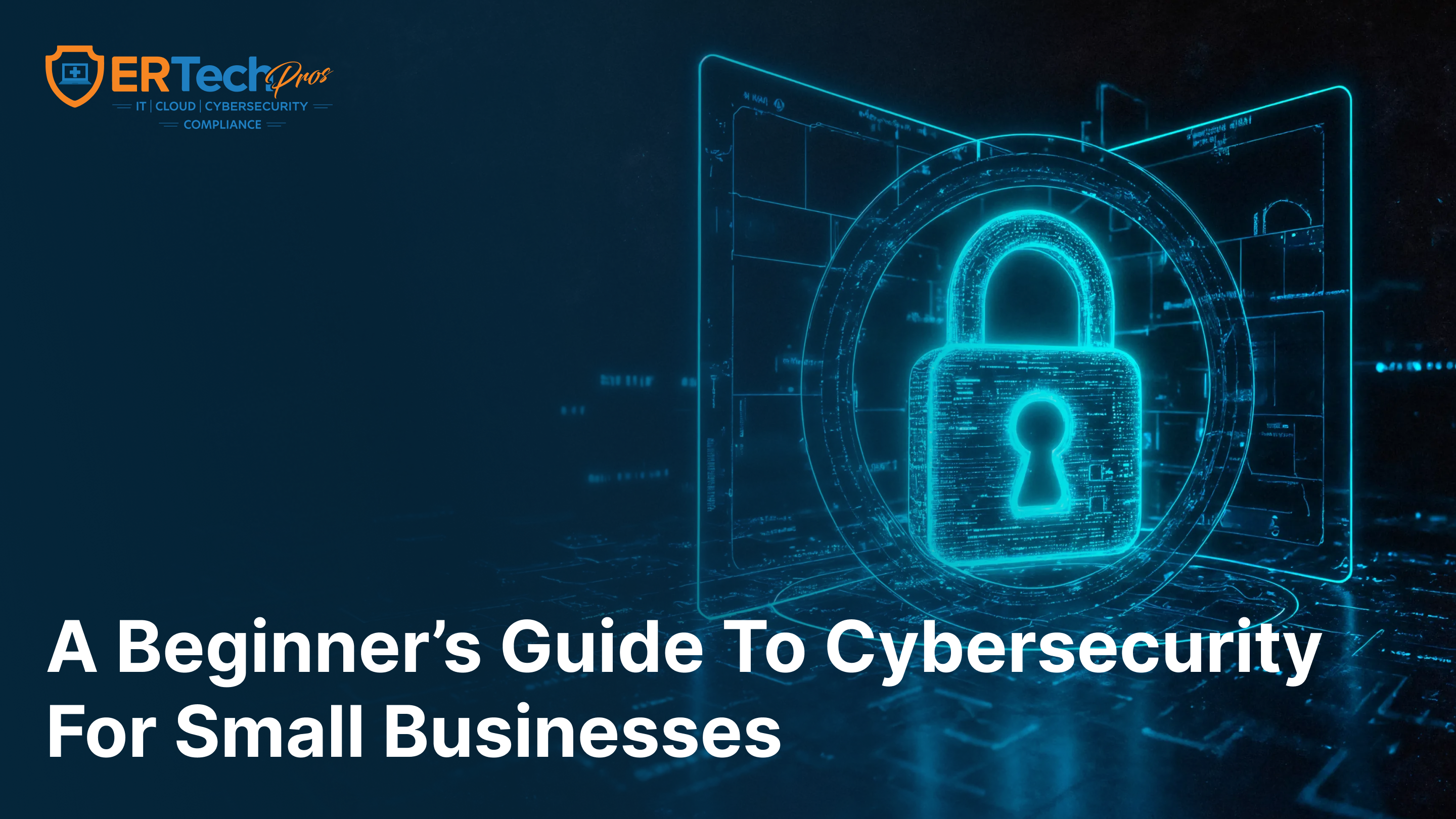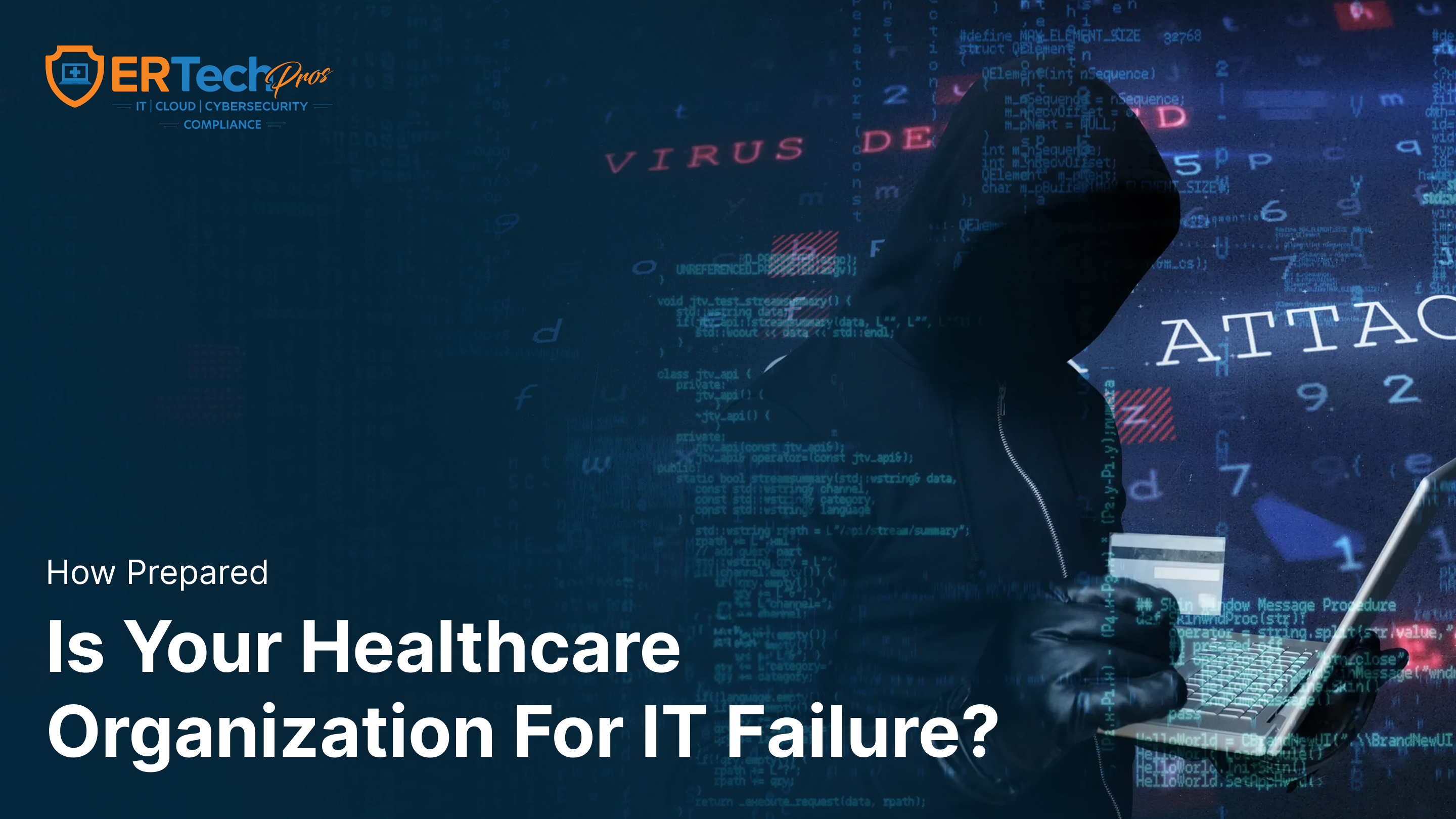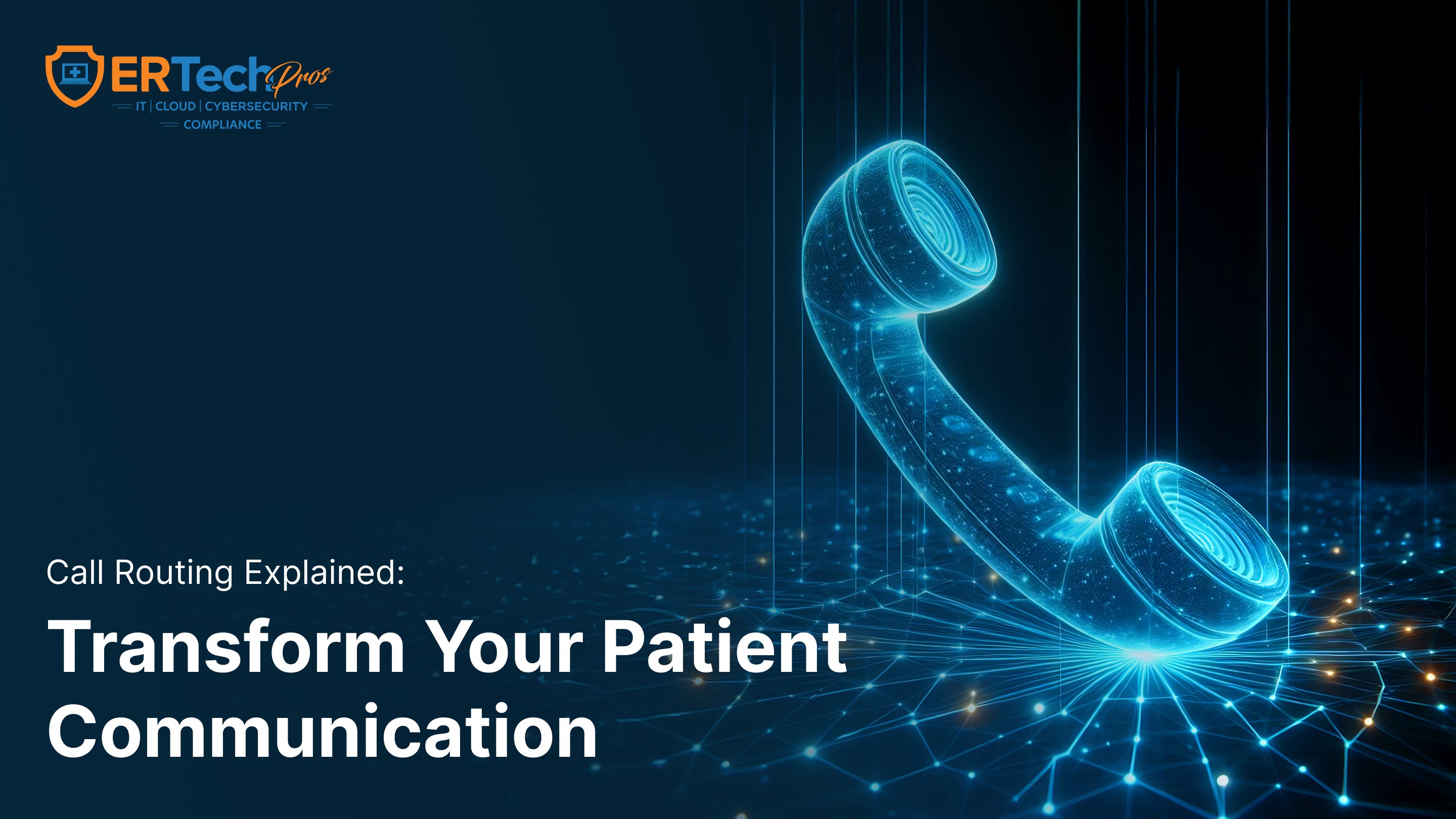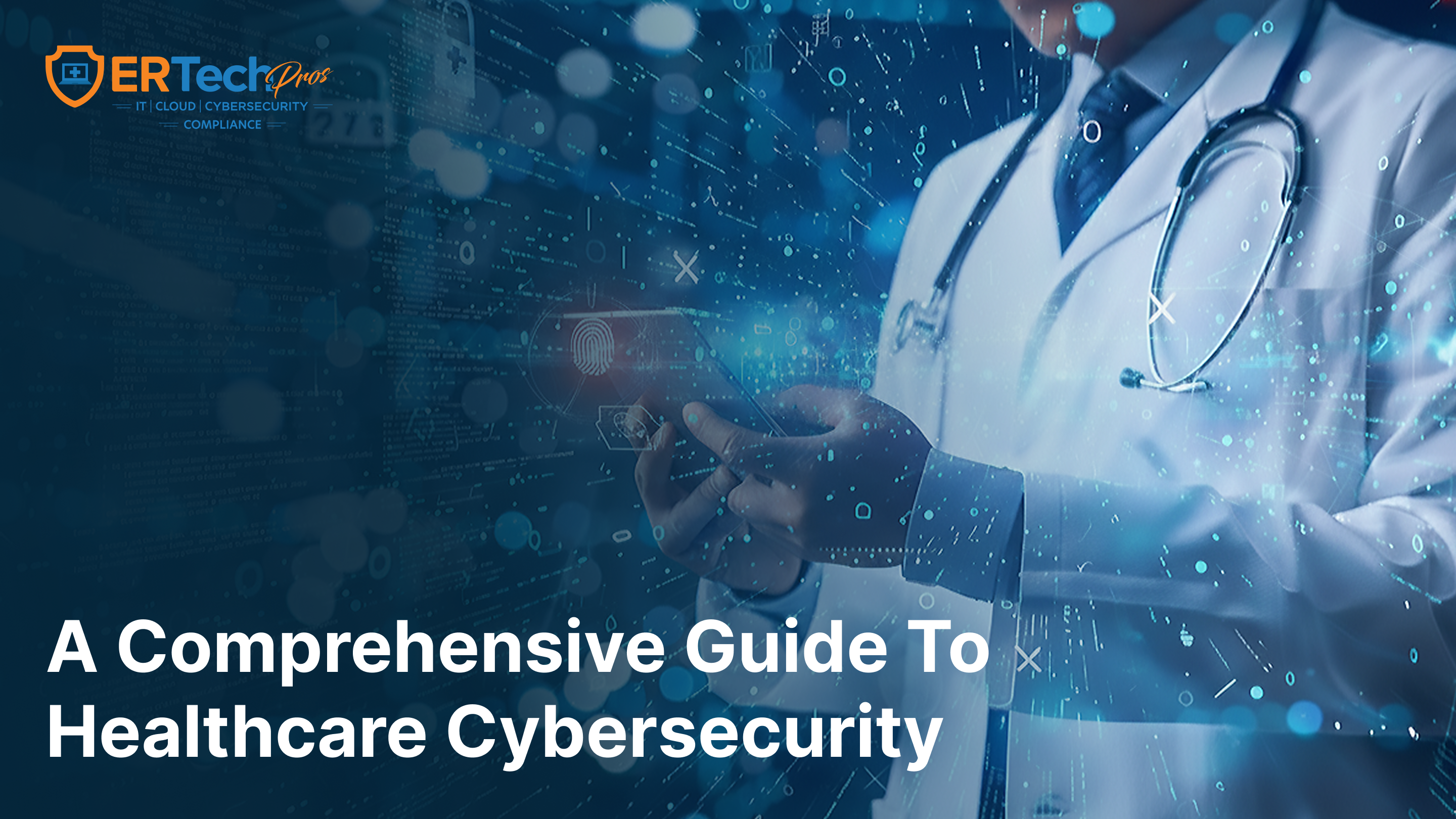A Beginner’s Guide to Cybersecurity for Small Businesses
Many small businesses assume hackers won’t target them, but attackers often see them as easy opportunities. This guide explains why small businesses are at risk and outlines practical cybersecurity steps to safeguard your data, systems, and reputation.

Do you know what’s one of the biggest cybersecurity mistakes small business owners make? Assuming they’re not worth a hacker’s time. In fact, cybercriminals often view smaller organizations as easier targets, knowing that their defenses aren’t as robust as those of large corporations.
To hackers, data is data; it’s always valuable. And when compromised, the ripple effects can be devastating to growing businesses like yours. For instance, 60% of small businesses shut down within six months following a cyberattack, according to Cybercrime Magazine.
Protecting your business doesn’t have to require a massive IT budget. With our cybersecurity experts, we help both large and small businesses establish a strong foundation for cybersecurity. And if you’d rather leave it to the professionals, our team is well-equipped to provide you with premium managed cybersecurity services without the hefty price tag.
In this guide, we’ll further explain why small businesses like yours are at risk and provide simple, practical steps you can take to protect your data, patients, and peace of mind.
Why Small Businesses Are Attractive Targets
Cybercriminals know that small and mid-sized businesses (SMBs) are easy pickings because these organizations usually don’t have the best cybersecurity solutions in place. The stakes are even higher if you’re in the healthcare industry. Patient data is highly desirable to cybercriminals, as it is worth up to 10 times more than credit card information on the black market.When you’re a small business, the most common threats you’ll encounter are:
- Data Theft – Stolen data, such as patient records and payment details, can be sold for profit or used in identity fraud.
- Ransomware – Malicious software locks down your systems until you pay a ransom. Even if you do pay, there’s no guarantee you’ll get your data back.
- Phishing & Social Engineering – Those “urgent” emails or convincing phone calls are designed to trick employees into giving away login credentials or sensitive information.
The Basics of Cybersecurity Every Small Business Should Know
Cybersecurity is about putting the right habits and tools in place. Here are some of the basics you should start with:
- Strong Passwords & AuthenticationWeak or reused passwords are among the easiest ways for hackers to sneak in. Encourage employees to create strong, unique passwords for every account, and use a password manager if needed. Better yet, add multi-factor authentication (MFA) so that even if a password is stolen, an extra security step keeps intruders out.
- Regular Software UpdateCybercriminals love outdated systems. When software companies release updates, they’re often fixing holes that hackers can exploit. Set updates to run automatically on computers, apps, and medical equipment to close those gaps before attackers find them.
- Firewalls & Antivirus ProtectionThese are your digital security guards. A firewall helps block suspicious traffic from reaching your systems, while an antivirus software detects and removes malicious files. Together, they create a solid first line of defense against malware.
- Secure Wi-Fi & DeviceMake sure your Wi-Fi network is protected with strong network security solutions, so it’s not left open for anyone to join. Additionally, ensure that laptops, tablets, and mobile devices used for work are password-protected and regularly updated with the latest security patches.
- BackupsEven the best defenses aren’t perfect, which is why backups are your safety net. Store copies of critical data both in the cloud and offline, so you can recover quickly if ransomware or hardware failure strikes.
Practical Steps to Strengthen Your Cybersecurity
After building a foundation with the basics, the next step is weaving cybersecurity into the way your business operates. These measures don’t require a budget, but they do require consistency. Here are some cybersecurity best practices:
- Train Staff RegularlyYour employees are your first line of defense. Teach them how to recognize phishing emails, suspicious links, and social engineering tactics. A well-trained team prevents threats from reaching your systems in the first place.
- Limit Access ControlsNot everyone needs access to everything. Give employees permission only to the files, apps, or data they need for their role. This reduces the risk of compromising user accounts.
- Use Encrypted CommunicationEspecially in healthcare, sensitive data should never be sent in plain text. Use encrypted email, messaging apps, and secure file-sharing platforms to keep information safe from prying eyes.
- Develop a Cybersecurity PolicyEven a simple policy goes a long way. Spell out password rules, device usage, data handling, and what to do if something looks suspicious. Having clear expectations keeps everyone on the same page.
- Create an Incident Response PlanCyber incidents aren’t a matter of if—they’re a matter of when. Outline the steps your team should take should a breach occur, including who to contact, how to isolate affected systems, and how to notify the relevant parties. The quicker the response, the less the damage.
The Role of Compliance and Regulations
Cybersecurity and compliance go hand-in-hand. You really can’t have one without the other. Most compliance frameworks, particularly in healthcare, are designed to protect sensitive data. That means a strong cybersecurity strategy is a legal requirement.Here are some regulations that apply to your business:
- Health Insurance Portability and Accountability Act (HIPAA): In healthcare, safeguarding patient information is the law. A HIPAA violation, even accidental, can result in substantial fines.
- Payment Card Industry Data Security Standard (PCI-DSS): If your business accepts credit or debit card payments, you must meet security requirements to protect cardholder data.
- General Data Protection Regulation (GDPR): If you work with patients or partners in the EU, GDPR rules apply, even if your business is based elsewhere.
Meeting compliance without regarding cybersecurity (or vice versa) leads to devastating effects. Having both, however, safeguards patient privacy, protects your systems from downtime, and reinforces trust with the people you serve.
Why Choose ER Tech Pros
Cybersecurity is something every small business can (and should) start strong with. But, there comes a point where do-it-yourself defenses aren’t enough, resulting in:
- Frequent IT issues that slow down daily operations
- No clear incident response plan in case of a breach
- Limited staff knowledge about phishing, ransomware, or compliance rules
- Growing patient data or payment systems that outpace your current security setup
- Concerns about compliance audits or fear of failing one
Does that mean we need to start paying top dollar for enterprise-level protection? Not necessarily.
When you have ER Tech Pros in your corner, you get that same level of security without breaking the bank because we:
- Have state-of-the-art tools to ensure you’re always protected.
- Help you stay compliant without overwhelming your budget.
- Provide practical, tailored managed cybersecurity services that perfectly fit your business.
- Work alongside your team so cybersecurity becomes part of your everyday culture.
Together, we can make protecting your business simpler, stronger, and more cost-effective.
Cybersecurity has many moving parts, so it’s completely understandable to feel overwhelmed. But it doesn’t have to happen all at once. Start with the basics, build good habits, and layer on more protection as your business grows.And if you ever feel like you need a trusted companion on the journey, don’t hesitate to give our experts at ER Tech Pros a call at (855) 378-3241 or schedule your free consultation. We’re always ready to walk alongside you in strengthening your defenses.
Got Questions? We've Got Answers
Find clear answers to common questions that help guide your healthcare IT operations.
Healthcare IT Solutions Built for Every Critical Second

Key Reasons IT Disaster Recovery Should Be A Top Priority for Healthcare Organizations

Call Routing in Healthcare: Why It Matters and How to Do It Right?
